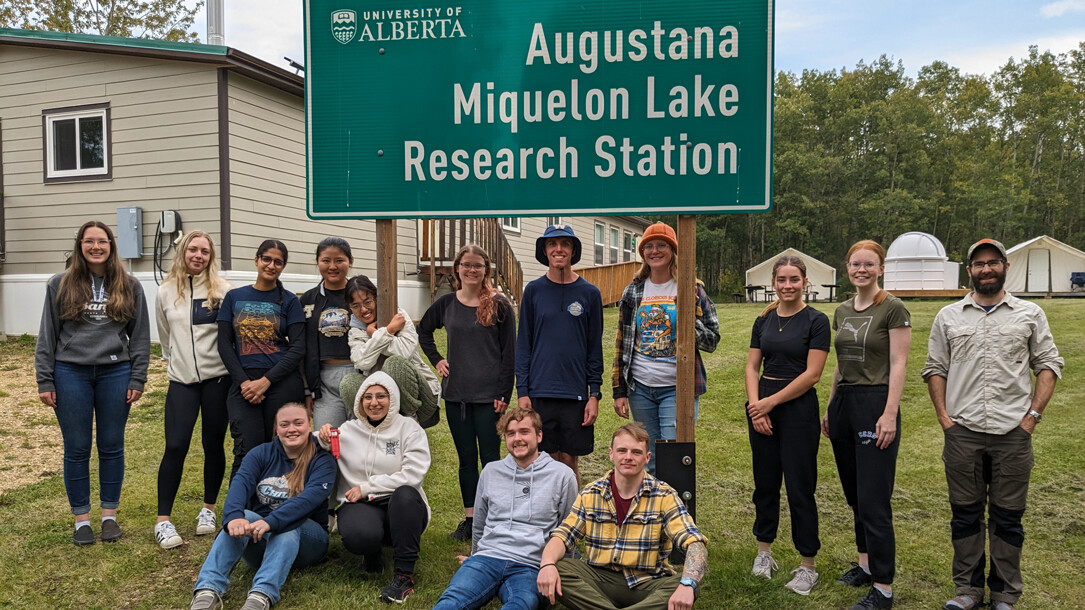A Magical Place

Miquelon Lake Provincial Park is a unique place. Situated in the Beaver Hills Biosphere, it’s a provincial park and a research station for University of Alberta Augustana students to conduct fieldwork in ecology and environmental science. It’s a place where education, recreation and the natural world all come together.
“Miquelon itself is a magical place,”
Professor Glen Hvenegaard says.
Glen and his co-instructor Greg King’s three-week fieldwork course this fall (the course is also co-taught by Glynnis Hood depending on the semester) saw students participate in a research day at Miquelon to share the findings of their fieldwork with Alberta Parks staff, Biosphere staff, environmental NGOs and members of the public.
Student research topics ranged from a potential composting program at Miquelon’s campsites, dark sky preserves, how beavers impact water quality and an investigation on roadkill – risk factors for snakes as they begin overwintering.
“The park staff really appreciate having the university folks use the park as a place to learn and research,” says Glen. “But the research is also very useful for them to look at data like, where are the snakes getting killed? Then we can adjust our park management accordingly. Or seeing the data on composting. Now we can see how it might be implemented in the park.”
By sharing the research with Alberta Parks staff and organizations like the Biosphere, the students not only practiced their presentation skills but also saw the real impact of their work by getting their research in front of the people who can apply what they’ve learned to improve the park.
Miquelon represents what is possible when we collaborate among organizations. This was particularly evident, says Glen, when the students shared their work.
“I think the people who attended got a lot of energy from the students and the way they presented and demonstrated their projects. We got a good sense of a synergy that can happen between parks and supporters and students and the university,” Glen says.
For the students at Augustana, many of whom hail from Camrose and the Biosphere themselves, it’s incredibly valuable to conduct this kind of research in the place where they live, work and attend school.
"There are great field courses that take students to places like Greece and Costa Rica," says Glen. "It's nice to go away to far off places, but it's also important to have students develop a solid knowledge of their home environment."
The collaborative nature of this event shows just what we can accomplish when we work together and bring new voices and experiences into the Biosphere community.
“I think these students will be ambassadors for the Biosphere into the future,” Glen adds.
Comments